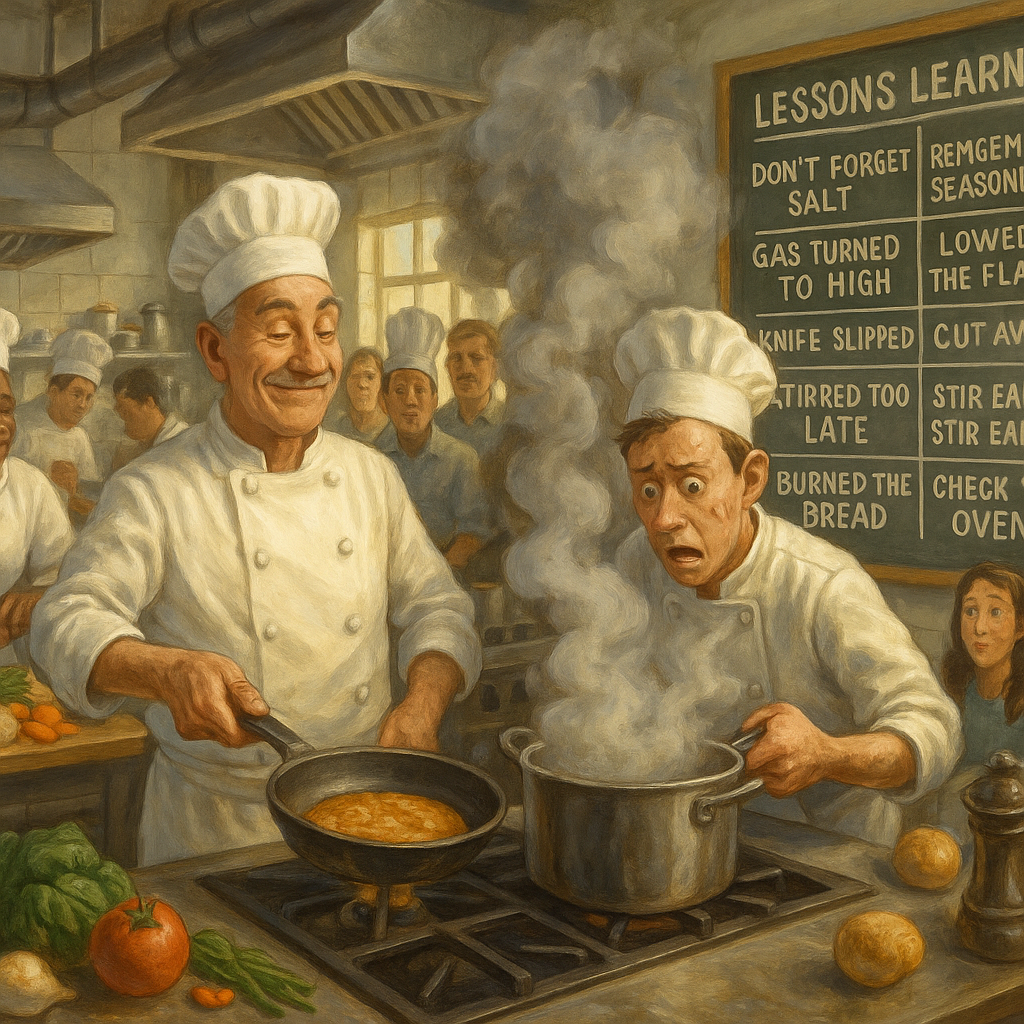We avoid them like expired milk.
But they're the only path forward.
Each failure is data. Success requires collecting enough data to actually know something.
The chef who's burned a thousand dishes knows exactly when to pull the pan off the heat. The rookie is still playing kitchen roulette.
The entrepreneur who's launched seven failed startups understands market dynamics in ways that business school can't teach. The patterns become visible only after you've face-planted enough times.
We've been trained to see mistakes as permanent marks on our record. But they're actually temporary tuition payments for the education we actually need.
You didn't learn to ride a bike by studying the physics of balance. You fell down. Got back up. Fell down again. Each spectacular wipeout taught your body something your mind couldn't Google
Nobody calls those falls "failures." We call them Tuesday.
The question isn't whether you'll make mistakes.
The question is whether you'll make them quickly, learn from them cheaply, and move forward deliberately.
Or whether you'll spend so much energy avoiding them that you never collect enough data to succeed at anything interesting.
The fastest way to get good at anything is to get spectacularly bad at it first. Then do it again.
And again.
The mistake isn't making mistakes. The mistake is making the same mistake twice because you were too busy being embarrassed to pay attention the first time.
Collect your data. Make your mistakes. Learn your lessons.
Success is on the other side of enough beautiful failures.


.png?width=767&name=Untitled%20design%20(5).png)

